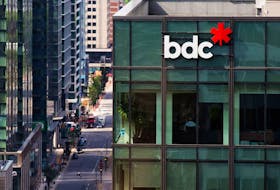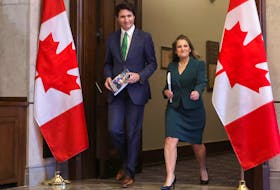Behind February’s stunning increases in house and condo prices — up 27 per cent and 17 per cent respectively year over year — is a simple reality for Ottawa house buyers. Inventories have shrunk to distressing lows. In the rare event you find a property you like, the odds are pretty decent that you will be outbid, often by a significant margin.
The problem has been building for years, but the COVID-19 pandemic pushed scarcity to extremes. Consider that, at this point three years ago, 3,700 properties were up for sale in Ottawa. That’s still not a large number in a market with 400,000 households. But the number of listings nosedived to 2,900 two years ago and to not quite 1,700 at the end of February 2020. Last month? The Ottawa Real Estate Board reported there were little more than 900 listings for residences and condos combined.
Sales volume hasn’t tumbled as quickly because it is taking less time to sell properties. In the first two months of 2018, you would have taken an average of 100 days to unload your condominium or 72 days to sell your residence. In 2021, a sale would have been wrapped up in 33 or 24 days, respectively.
This means that business has been good for realtors despite the drop in inventories. Realtors sold 1,740 properties of all types in the first two months of 2018. So far this year, they have seen 2,537 properties change hands for total sales volume of $1.5 billion.
But for buyers, this market has been an exercise in frustration. The sharp jump in prices has left would-be first-time buyers despairing they will ever be able to own homes. Just two years ago, the average price for a residential property in Ottawa was $466,500. By last month, the average had soared 54 per cent to nearly $718,000. That represented a gain of a quarter-million dollars.
Related
It’s been somewhat better for first timers contemplating buying condos. Prices last month averaged $407,700, representing a two-year gain of 41 per cent over depressed values.
There’s little question the real price squeeze was triggered by the pandemic. Before COVID-19, year-over-year increases in residential resale prices averaged less than 10 per cent. But several factors have combined to push up prices more dramatically.
First, the central banks reduced interest rates. People could pay more for a house and suffer no rise in their monthly mortgage expenses.
Second, a significant percentage of Ottawa’s housing stock is owned by older people, particularly baby boomers, who proved reluctant to put properties on the market. The risk of a COVID-19 infection convinced many to stay put, and not just because they didn’t want strangers in their homes. Fewer boomers than normal made the shift to longer-term care facilities.
The tighter the market, the more other would-be sellers had to ask themselves where they would move to.
As the pandemic progressed, the answer for some was to seek space, either in the form of larger suburban homes or rural properties.
With so few properties available, bidding wars ensued and prices soared. Residential properties in the Ottawa Valley sold for an average of $525,500 in January and February, up nearly 39 per cent compared to the same period last year. Prices in Ottawa jumped a comparatively modest 27 per cent to $771,400. And many of the biggest jumps occurred in semi-rural districts such as Bells Corners, Manotick, Greely and Dunrobin.
Who’s buying these properties? That leads to another important influence of the pandemic. Stock prices have surged, particularly among high-tech firms. Real-estate brokers say a range of buyers are willing to shell out hundreds of thousands of dollars more than asking price: professionals, investors, top mandarins, business owners and, yes, refugees from the even higher-priced market of Toronto.
With low inventories, the market quickly resolves in favour of those with enough money to prevail in bidding wars. The danger, of course, is that those new prices will set a floor for the other 99 per cent of Ottawa homeowners who have been watching this very strange market from the sidelines.
Things might return to normal when boomers and others finally feel comfortable about selling their homes, and that will almost certainly require herd immunity from the coronavirus.
Copyright Postmedia Network Inc., 2021







